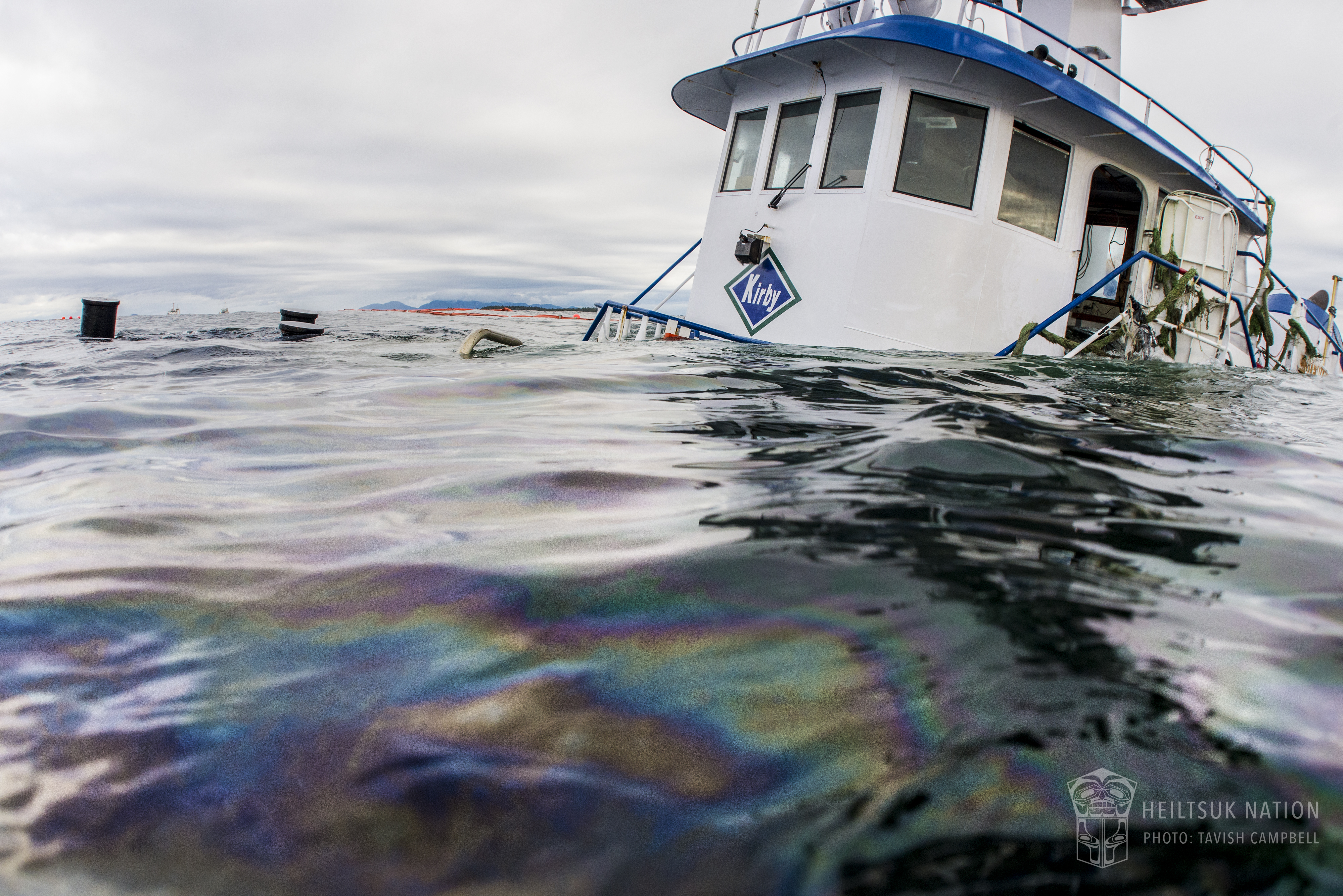For years, Heiltsuk has warned against the threat of oil spills, but even so, the Nathan E. Stewart oil spill was a devastating wake-up call for us.
On Oct. 13, 2016, as diesel poured out of the hull of the tug that had crashed into critical endangered abalone habitat and onto the shores of our ancient clam gardens, we waited for spill response equipment to arrive.
What came next is well documented. Equipment that wasn’t broken was poorly deployed. There was confusion on all sides over who was in charge. The tug that had run aground was not removed for over a month. Our volunteer responders were deployed without adequate safety equipment or instruction.
As hours turned to days, marine traffic continued around us unabated, forcing us to acknowledge the inevitability of future emergencies and the need for better response — for Heiltsuk, for our neighbouring communities and for the environment we share with all British Columbians.
This was the starting point for what eventually became our proposal for an Indigenous Marine Response Centre (IMRC).
We know from Ahousaht’s experience with Leviathan II, Gitga’at and Queen of the North, and Heiltsuk and Nathan E. Stewart that Indigenous communities have and will continue to be the first responders to marine incidents in our waters. The question is how best to develop community capacity to address emergencies in our territories as they arise, and how to deliver the world class protection Canada’s oceans and communities need and deserve.
The result is Creating a World-Leading Response System a report commissioned by Heiltsuk Tribal Council.
Based in Heiltsuk Territory and serving the entire central and north coast, the IMRC concept is built on a series of studies that analyze historical marine incidents and predict the likelihood of future ones. Situating an IMRC in Bella Bella would allow us to respond to the overwhelming majority of incidents on the central and north coast in less than five hours (and to many within one hour).
The report outlines what is needed for an effective community-led response system to prevent and respond to a variety of marine incidents. An IMRC will use the best-available western and traditional knowledge and will leverage Heiltsuk’s millennia-long tradition of environmental stewardship. Having more oil spill response equipment alone is not the answer; an IMRC will use local expert knowledge on tides, currents, weather and more to mount effective responses.
When these incidents happen on our coast, Indigenous people bear a disproportionate risk, and we are almost always on the frontlines. Next time, for everyone’s sake, we want to be able to respond safely, effectively and immediately.
Canadians have told us they want and need a better system. We believe the federal government will want to work with us and others to create that brighter future. The clock is ticking. ![]()
Read more: Indigenous, Environment















Tyee Commenting Guidelines
Comments that violate guidelines risk being deleted, and violations may result in a temporary or permanent user ban. Maintain the spirit of good conversation to stay in the discussion.
*Please note The Tyee is not a forum for spreading misinformation about COVID-19, denying its existence or minimizing its risk to public health.
Do:
Do not: